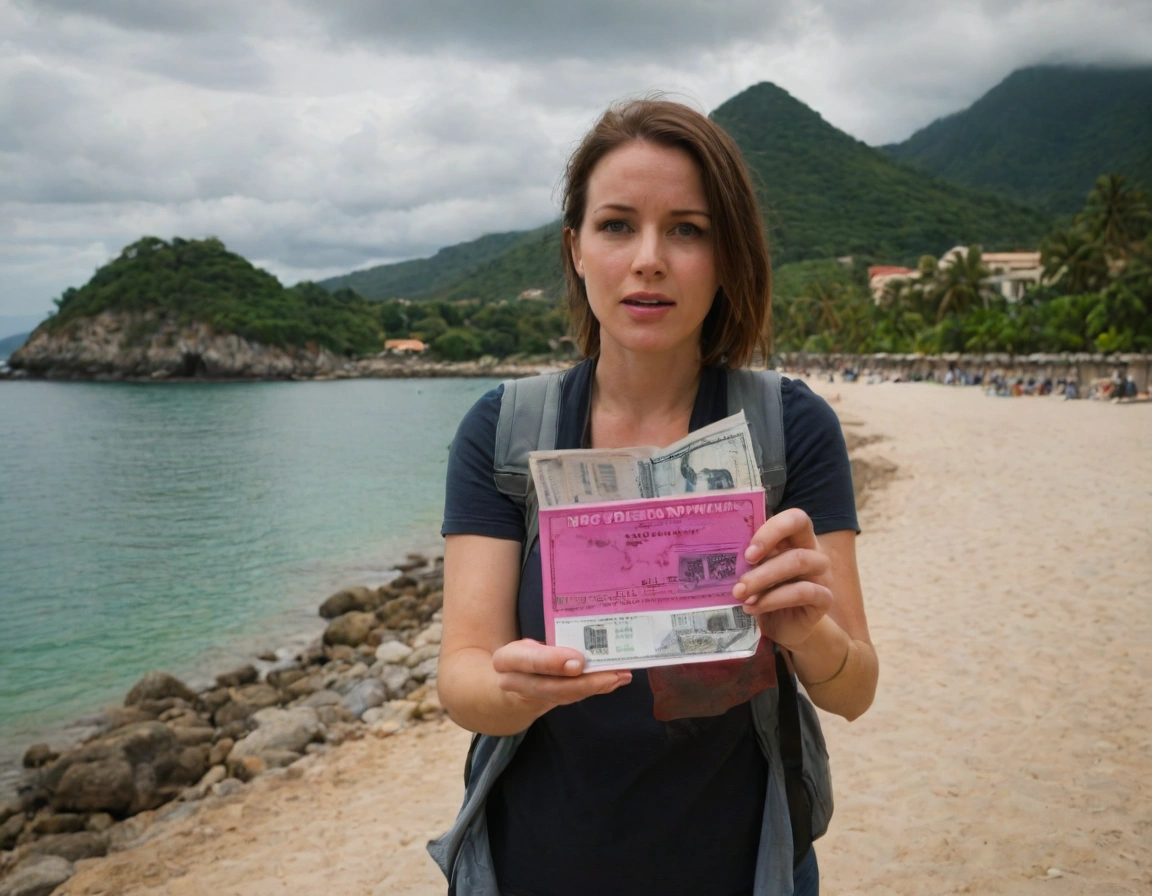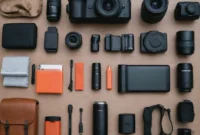How to avoid travel scams? It’s a question every traveler should ask themselves. The world is full of friendly faces, but unfortunately, some prey on unsuspecting tourists. From fake tour guides to overpriced souvenirs, scams can ruin your trip and leave you frustrated and out of pocket. But don’t worry, with some knowledge and awareness, you can protect yourself and enjoy a safe and memorable journey.
This guide will equip you with the tools to navigate the world of travel scams, uncovering the common tricks used by scammers and offering practical tips to stay safe. We’ll delve into online safety measures, strategies for navigating crowded tourist areas, and ways to protect your money and documents. Get ready to learn how to outsmart the scammers and have the trip of a lifetime!
Protecting Your Money and Documents
Protecting your money and important documents while traveling is crucial to avoid financial headaches and ensure a smooth trip. By implementing a few simple strategies, you can significantly reduce the risk of theft or loss, allowing you to focus on enjoying your adventure.
Keeping Your Money and Credit Cards Safe, How to Avoid Travel Scams
Keeping your money and credit cards safe is essential for a worry-free trip. Here are some tips:
Use a Money Belt or Hidden Wallet: A money belt worn under your clothes or a hidden wallet in your bag can help deter thieves. It’s also a good idea to distribute your cash across multiple locations, such as your wallet, a money belt, and a hotel safe.
Limit the Amount of Cash You Carry: Only carry the daily cash you need. This minimizes your losses if you are robbed or lose your wallet.
Keep Your Credit Cards in a Secure Place: Store your credit cards securely within your bag or purse, preferably in a separate compartment. Consider using a credit card holder with RFID-blocking technology to protect your card information from electronic theft.
Notify Your Bank of Your Travel Plans: Let your bank know your travel dates and destinations to prevent transaction issues or fraud alerts.
Use a Travel Credit Card: Travel credit cards offer benefits like travel insurance, reward points, and fraud protection. They also have built-in security features and can be easily replaced if lost or stolen.
Making Copies of Important Documents
Making copies of your important documents can be a lifesaver if they are lost or stolen.
Passport: Keep a photocopy of your passport separate from the original. You can also scan and save a digital copy to your email or cloud storage.
Credit Cards: Note all your credit card and customer service phone numbers. Store this information separately from your physical cards.
Driver’s License: Keep a copy of your driver’s license handy, as it may be needed for identification purposes.
Airline Tickets and Hotel Reservations: Print or save digital copies of your airline tickets, hotel confirmations, and other travel documents.
Travel Insurance Policy: Take a copy of your travel insurance policy for emergencies or unexpected events.
Avoiding Scams at ATMs and Currency Exchange Booths
ATMs and currency exchange booths can be tempting targets for scammers. Here are some tips to protect yourself:
Use ATMs in Safe Locations: Choose ATMs in well-lit, busy areas, preferably inside banks or reputable establishments. Avoid ATMs in secluded or unfamiliar locations.
Check the ATM for Tampering: Before using an ATM, inspect it for any signs of tampering, such as loose parts, scratches, or unusual attachments.
Be Aware of Your Surroundings: Be mindful of your surroundings when using an ATM. Avoid using an ATM if you feel uncomfortable or if someone watches you closely.
Use Currency Exchange Booths Located in Reputable Places: Opt for currency exchange booths within banks, airports, or reputable hotels. Avoid small, independent exchange booths, especially those located in tourist areas.
Compare Exchange Rates: Before exchanging currency, compare exchange rates from different providers to ensure a fair deal.
Count Your Money: Always count immediately after withdrawing cash from an ATM or exchanging currency. Report any discrepancies to the bank or exchange booth staff immediately.
What to Do if You Are Scammed: How To Avoid Travel Scams

Unfortunately, you might still fall victim to a travel scam even with the best precautions. Acting quickly and decisively is crucial to minimize the damage if you suspect you’ve been scammed.
Reporting Scams to Local Authorities
Reporting scams to local authorities is essential for several reasons. It helps authorities track scams, potentially prevent future victims, and even assist in recovering your lost funds.
Contact the local police: If you believe you’ve been the victim of a crime, file a report with your local police department. They can investigate the matter and may be able to provide you with further guidance.
Report to the relevant consumer protection agency: Depending on the type of scam, you may also want to report it to your country’s consumer protection agency. For example, you can report scams to the Federal Trade Commission (FTC) in the United States.
Inform your bank or credit card company: If you’ve made a fraudulent transaction, contact your bank or credit card company immediately. They can help you dispute the charges and potentially recover your funds.
Conclusive Thoughts
Remember, staying safe while traveling doesn’t have to mean sacrificing the joy of exploration. By understanding the common tactics of scammers, implementing smart precautions, and staying vigilant, you can protect yourself from becoming a victim.
So, embrace the adventure, but do it with your eyes wide open. With this knowledge, you’ll be ready to confidently navigate the world, knowing that you’ve taken the necessary steps to protect yourself and your hard-earned money. Now go out there and create memories that will last a lifetime!
Detailed FAQs
What are some common scams at airports?
Be wary of people offering to help you with your luggage, especially if they seem overly friendly or pushy. They may try to steal your belongings or charge you exorbitant fees for their “assistance.” Additionally, be cautious of individuals approaching you with “lost and found” items, as they might be trying to distract you while their accomplice steals your belongings.
How can I avoid being scammed at a hotel?
Always verify the hotel’s legitimacy before booking online. Look for reviews, check the hotel’s website for contact information, and be cautious of deals that seem too good to be true. Once you arrive, be aware of your surroundings and don’t leave valuables unattended. If you suspect a scam, contact the hotel management immediately.
What should I do if I think I’ve been scammed?
Report the incident to the local authorities. Keep evidence of the scam, such as receipts, emails, or messages. If you used a credit card, contact your bank immediately to report the fraudulent activity. Be sure to document the incident in detail for future reference.





